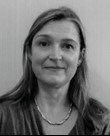
We live in dark times. As I write, representatives of eight South American governments are gathering in Brazil to talk about the Amazon rainforest, a massive area twice the size of India that functions as an essential device to store carbon. Despite the fact our planet relies on carbon capture to reduce global warming, governments have historically viewed the Amazon as an area to be colonised and exploited, with little regard for sustainability or the rights of its Indigenous peoples.
Consequently, as atmospheric chemist Luciana Gatti points out in a recent report in The Independent, 1 deforestation leads to more greenhouse gases in the atmosphere, and generally means reduced rainfall and higher temperatures. ‘By deforesting the Amazon, we are accelerating climate change,’ Gatti told The Associated Press. We are literally destroying the very conditions that can sustain our long-term viability on this planet.
This ‘tension of opposites’2 , as Jung called it – and which was one of his foundational precepts – is, of course, stock-in-trade for us, as counsellors and psychotherapists. The pull between life and death, creativity and destruction, love and hate, autonomy and dependence etc. We are accustomed to attuning to the inner conflicts of our clients and to the ones at play in our own psyches too. The conflict between what we know, or might sense, we need to live a life that’s aligned to our deepest, most authentic desires and needs, and the accommodations our egos make to live according to what has been expected of us, or what other people and the wider culture in which we exist have wanted or needed from us – or imposed on us.
Gestalt psychotherapist and facilitator at the Nature Therapy School, Suzanne Worrica, speaks to this theme in her interview with Sarah Van Gogh, titled Attuning to the darkness’, in this issue. From her travels in Benin, Suzanne says, ‘I noticed people had a really strong connection to the land, and to their culture and community. There was a sense that people needed one another, and they needed the land, and to commune with each other and the land to continue their culture.’ Something that the Indigenous peoples of the Amazon, among many others across the globe, have sadly had stolen from them. ‘We have a human need to be in touch with our land,’ Suzanne argues, and when that is taken from us, all too often by forces outside of our control, we suffer and lose our sense of belonging.
Having trained after lockdown in Nature Allied Psychotherapy, a model devised by Beth Collier, and having become a facilitator at the Nature Therapy School, Suzanne describes how, by taking people into nature and teaching them bushcraft techniques so that they can build shelter, make fire and prepare food, they develop trust in, and draw closer to, each other. ‘To be part of a group that connects with the ways of the ancestors in this way is special’, she says.
Perhaps we need to return to nature more than ever, not just to find solace and comfort from the dark times in which we live, but to help to heal the planet on which we depend.
John Daniel, Editor
privatepractice.editorial@bacp.co.uk



